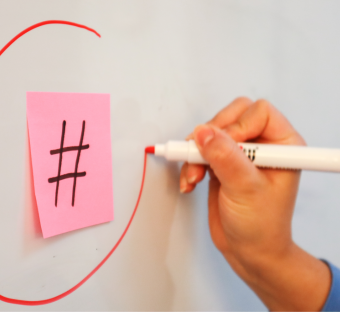For the last year Maybe* has observed that when it comes to department stores, beauty content can boost social media engagement and sentiment. In addition to this, it is beauty brands and influencers who create the most content about department stores. We revisited these findings to see if this held true during lockdown and beyond.
Despite its pretty name, the lipstick effect, coined after World War II, is a consumer behaviour pattern. During a time of economic crisis, spend on big ticket luxury items goes down, while spend on expensive little luxuries, like say; lipstick, goes up.
But in this era, the lipstick effect also equals social currency for brands. Because beauty is big social media business.














